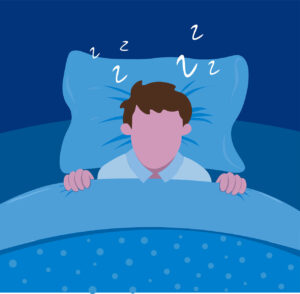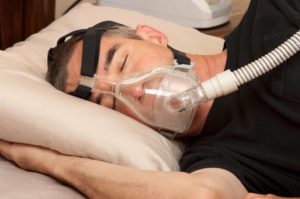 If you have obstructive sleep apnea syndrome, you may not even know it. That’s because it usually happens when you’re asleep. But there are some telltale signs and symptoms of sleep apnea that you can look out for:
If you have obstructive sleep apnea syndrome, you may not even know it. That’s because it usually happens when you’re asleep. But there are some telltale signs and symptoms of sleep apnea that you can look out for:
- Loud snoring
- Gasping or choking during sleep
- Pauses in breathing during sleep
- Daytime fatigue or drowsiness
- Morning headaches
Sleep apnea is a common sleep disorder that many people suffer with.
Mesa sleep apnea treatment can be found in modern dentistry and related fields, but did you know there are at-home treatments as well?
Our Mesa dentists have gathered some of the most effective home remedies to treat sleep apnea that you can start using today.
Home Remedies for Sleep Apnea
1. Change Your Sleep Position
Most people with sleep apnea are back sleepers, which can cause your airway to collapse. Sleeping on your back allows gravity to keep your airway open. If you’re a stomach sleeper, try placing a pillow under your hips to tilt your pelvis and open up your airway.
2. Lose Weight
Excess body weight is a big contributor to sleep apnea. If you’re overweight, even a small amount of weight loss can help in treating sleep apnea. Losing just 10% of your body weight can make a big difference.
3. Quit Smoking
Smoking is a bigger cause of sleep apnea than many people realize. Smoking irritates the upper airway, which can make it more likely to collapse during sleep. If you smoke, quitting is one of the best things you can do for your sleep apnea.
4. Avoid Alcohol Before Bed
Drinking alcohol before bed relaxes the muscles in your throat, which can worsen sleep apnea by making your airway more likely to collapse during sleep. If you drink alcohol, avoid doing so for at least four hours before bedtime.
5. Use a Humidifier
Dry air can irritate your airway and make sleep apnea symptoms worse. Using a humidifier can help keep your throat moist and reduce irritation.
6. Keep Your Nasal Passages Clear
One of the best ways to do this is by using a neti pot or saline nasal spray to flush out your sinuses. This will help clear your airway and reduce sleep apnea symptoms.
7. Try Herbal Remedies
Some herbs, such as ginger, fenugreek and turmeric have anti-inflammatory properties that can help reduce sleep apnea symptoms.
8. Practice Relaxation Techniques
Yoga, meditation and deep breathing exercises can help relax the muscles in your throat and reduce sleep apnea symptoms.
When Trying Things At Home Just Isn’t Working
 When sleep apnea becomes chronic and interferes with your quality of life, it’s time to seek medical help. There are a number of effective treatments for sleep apnea, including:
When sleep apnea becomes chronic and interferes with your quality of life, it’s time to seek medical help. There are a number of effective treatments for sleep apnea, including:
- CPAP machine: This is the most common and effective treatment for sleep apnea. A CPAP (continuous positive airway pressure) machine delivers air through a mask that you wear during sleep. The air pressure keeps your airway open so you can breathe normally.
- Oral appliances: These devices are custom-fitted to your mouth and move your lower jaw forward to keep your airway open during sleep.
- Surgery: In some cases, surgery may be necessary to remove excess tissue from the palate or throat or to tighten the muscles in the throat.
Our dentists offer treatment for sleep apnea. With a consultation and diagnostic exams, we can create a customized treatment plan for you. Give us a call today to learn more!

